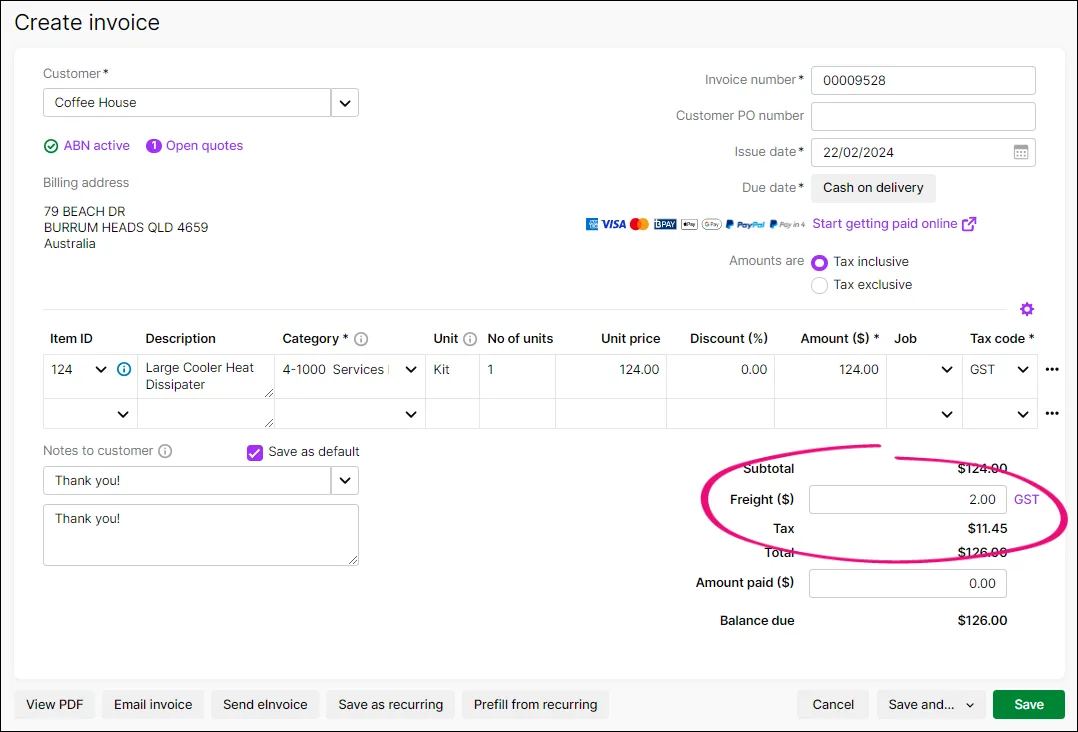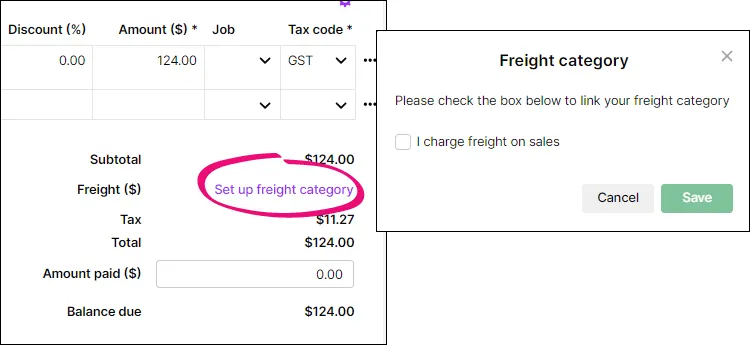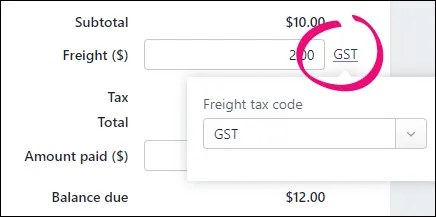There's a Freight field that lets you easily record freight costs associated with sales and purchases. You can enter your freight cost (and the tax component of freight is calculated automatically):

The Freight field is available in:
invoices
quotes
purchase orders
bills
customer returns
supplier returns.
You no longer need to enter freight as a line item
Instead of listing freight costs as a separate line item in sales and purchases, just enter the amount in the Freight field – it's a lot simpler!
How the Freight field works
The Freight field works with a linked category. Linked categories are the default categories used for various functions in MYOB Business. They work behind the scenes to make sure that the right categories are used consistently and correctly. They also save you having to choose a category every time you use a function. There are two freight linked categories you can use: an income one for sales and an expense/cost of sales one for purchases. Find out more about linked categories.
Switch it on
It's easy to switch the Freight field on. You can either set it up when you enter a transaction, by clicking Set up freight category, choosing your freight category and then entering the freight cost in the Freight field.

Or, you can set up the Freight field by going to the Accounting menu > Manage linked categories > Sales/Purchases tabs and choosing a category for freight income or costs:

The Freight field will then be available every time you enter a transaction.
The Freight tax code is the tax code assigned to the freight linked category. You can change it by clicking it and choosing another:
